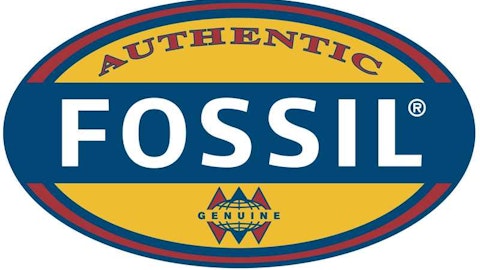The investing measure known as return on equity is a popular metric in which an investor can evaluate a management team’s effectiveness. Return on equity addresses how much profit a company turns from the amount of money shareholders have invested. The higher the percentage, the better a company’s management is at employing a firm’s equity in a manner that is accretive to shareholders. It’s a fairly straightforward concept, but at the same time is vulnerable to manipulation.

However, there do exist companies that not only have high returns on equity, but also have low levels of debt on the balance sheet. In this sense, these companies truly ‘earn’ their high returns on equity.
Diverse stocks with two similarities: high growth, no debt
Monster Beverage Corp (NASDAQ:MNST) is a marketer and distributor of energy drinks and alternative beverages. Net sales rose 15% during the fourth quarter and 21% for the full year. Net income clocked in at $1.86 per diluted share during 2012, as opposed to $1.53 per diluted share the year prior, representing a 22% increase.
Monster Beverage Corp (NASDAQ:MNST) carries a spectacular return on equity ratio of 53%, with negligible long-term debt on the balance sheet. In addition, the company sports a current ratio of 2.9 times, meaning Monster Beverage Corp (NASDAQ:MNST) has almost three times as much short-term assets as short-term liabilities.
Mastercard Inc (NYSE:MA) is a $63 billion credit card giant, and has performed incredibly as of late. The company’s shares have almost doubled over the last two years. Mastercard Inc (NYSE:MA) reported positive results for its fiscal fourth-quarter, with revenues rising 10%. Earnings per share clocked in at $4.86, beating analyst expectations by five cents.
Full-year results were even more impressive, as diluted earnings per share soared 48% on the strength of a 10% increase in net revenues year over year. Furthermore, the growth profile for Mastercard Inc (NYSE:MA) going forward is encouraging, as the company’s focus on emerging markets has led it to predict 20 percent compounded annual growth of earnings per share from 2013-2015.
Mastercard Inc (NYSE:MA)’s return on equity is a very solid 40%, especially when you consider that the company carries a current ratio of 1.9 times and a long term debt-to-equity ratio of just 9%.
Earlier this year, consumer fashion company Fossil Inc (NASDAQ:FOSL) reported record fourth-quarter and fiscal 2012 results. During the quarter, net sales and earnings per share increased 14% and 34%, respectively. Earnings per share for the full year hit a record $5.59, rising 21% from the year before. Even better, the good times are expected to continue for Fossil Inc (NASDAQ:FOSL). Management expects first-quarter and full-year 2013 sales growth of 10%, and full-year diluted earnings per share are expected to be in a range of $5.85 to $6.15.
Fossil Inc (NASDAQ:FOSL) has a great balance sheet, with a long term debt-to-equity ratio of just 6% and more than twice as much cash and equivalents as long-term debt. In addition, the company’s return on equity was 27% last year, indicative of how efficiently the company is managed.
High returns on equity, and high returns for shareholders
These companies can take pride in their high returns on equity. They don’t have high ROEs just because of high levels of debt; rather, each of these companies has legitimately elevated profit generation from the financing shareholders have contributed.
Shareholders of these stocks should take pride in the extremely efficient and streamlined operations of each company. Each of these companies is conservatively capitalized, with very little debt on their respective balance sheets. These three stocks offer tremendous sales and profit growth without overburdening shareholders with debt. If you’re in the market for high-growth companies with sparkling clean balance sheets, start your research with these stocks.
The article Three Stocks With Legitimately High Returns on Equity originally appeared on Fool.com and is written by Robert Ciura.
Copyright © 1995 – 2013 The Motley Fool, LLC. All rights reserved. The Motley Fool has a disclosure policy.


